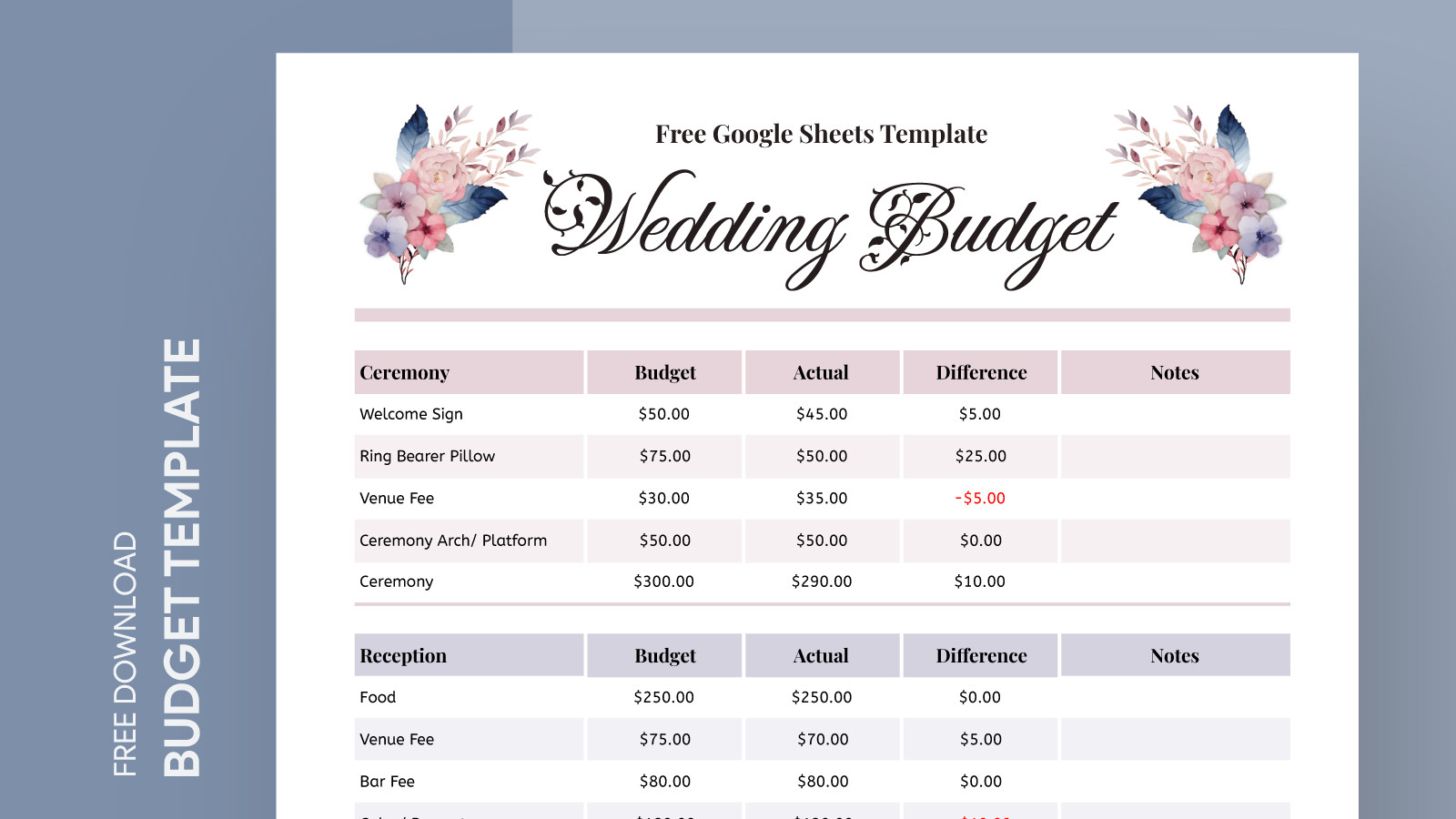Planning a wedding can be an exciting yet overwhelming experience. From choosing the perfect venue to finding the right vendors, there are countless decisions to make. One of the most important aspects of wedding planning is creating a budget. A budget template for wedding planning can help you stay organized and ensure that you don’t overspend on your special day. In this article, we will discuss the importance of a budget template for wedding planning, and provide tips on how to create one that works for you.
What is a Budget Template for Wedding Planning?
A budget template for wedding planning is a tool that helps you keep track of your expenses and stay within your financial limits. It typically includes categories such as venue, catering, flowers, attire, and transportation, among others. By creating a budget template, you can allocate funds to each category and ensure that you have enough money set aside for every aspect of your wedding.
The Purpose of a Budget Template for Wedding Planning

Image Source: website-files.com
The purpose of a budget template for wedding planning is to help you manage your finances effectively and avoid overspending. By outlining your expenses and setting limits for each category, you can make informed decisions about where to allocate your funds. A budget template also allows you to prioritize your spending and allocate more money to the aspects of your wedding that are most important to you.
Why You Need a Budget Template for Wedding Planning
Without a budget template, it can be easy to overspend on your wedding and end up with unexpected costs. A budget template helps you stay on track and ensures that you have a clear understanding of your financial situation throughout the planning process. By sticking to your budget, you can avoid financial stress and focus on enjoying your special day.
How to Create a Budget Template for Wedding Planning

Image Source: gdoc.io
Creating a budget template for wedding planning is a relatively simple process. Start by listing all the categories of expenses you anticipate for your wedding, such as venue, catering, attire, and decorations. Next, allocate a budget for each category based on your overall financial plan. Be sure to leave some room for unexpected expenses, as they are bound to arise during the planning process. Update your budget template regularly as you make decisions and book vendors to ensure that you stay within your financial limits.
1. List all potential expenses
When creating your budget template, make sure to include all potential expenses, no matter how small. This will help you have a comprehensive view of your financial obligations and avoid any surprises down the line.
2. Allocate funds wisely

Image Source: templatables.com
Prioritize the aspects of your wedding that are most important to you and allocate more funds to those categories. This will help you make informed decisions about where to spend your money and ensure that you are happy with the outcome.
3. Keep track of payments
As you make payments and book vendors, be sure to update your budget template accordingly. This will help you stay on top of your expenses and avoid overspending in any one category.
4. Be flexible

Image Source: gdoc.io
While it’s important to stick to your budget, it’s also important to be flexible and willing to make adjustments as needed. Unexpected expenses may arise, so be prepared to reallocate funds if necessary.
5. Review regularly
Make it a point to review your budget template regularly throughout the planning process. This will help you stay on track and make adjustments as needed to ensure that you stay within your financial limits.
6. Seek professional help if needed

Image Source: buyexceltemplates.com
If you’re feeling overwhelmed or unsure about creating a budget template for your wedding, don’t hesitate to seek help from a financial advisor or wedding planner. They can provide valuable insight and guidance to help you create a budget that works for you.
7. Stick to your budget
Once you have created a budget template for your wedding, make a commitment to stick to it. This will help you avoid financial stress and ensure that you can enjoy your special day without worrying about money.
8. Celebrate your financial success

Image Source: gdoc.io
As you stick to your budget and successfully plan your wedding within your financial limits, take a moment to celebrate your financial success. You’ll feel proud of your accomplishments and can enjoy your wedding day with peace of mind knowing that you stayed within your budget.
Tips for Successful Wedding Budget Planning
Planning a wedding on a budget can be challenging, but with the right tools and mindset, it is definitely achievable. Here are some tips for successful wedding budget planning:

Image Source: gdoc.io
Set priorities: Determine what aspects of your wedding are most important to you and allocate more funds to those categories.
Research vendors: Shop around and compare prices from different vendors to ensure you are getting the best value for your money.
Consider DIY options: Get creative and consider DIY options for decorations, invitations, and favors to save money.
Track your expenses: Keep a detailed record of all your expenses and update your budget template regularly to stay on track.
Communicate with your partner: Make sure you and your partner are on the same page when it comes to budgeting and financial decisions for your wedding.
Be flexible: Don’t be afraid to make adjustments to your budget if unexpected expenses arise. Stay flexible and willing to adapt as needed.
In conclusion, a budget template for wedding planning is a valuable tool that can help you stay organized, manage your finances effectively, and avoid overspending on your special day. By creating a budget template and following the tips outlined in this article, you can successfully plan your wedding within your financial limits and enjoy a stress-free and memorable celebration.